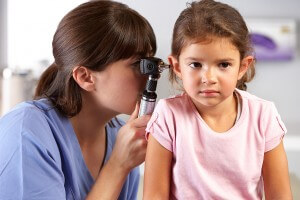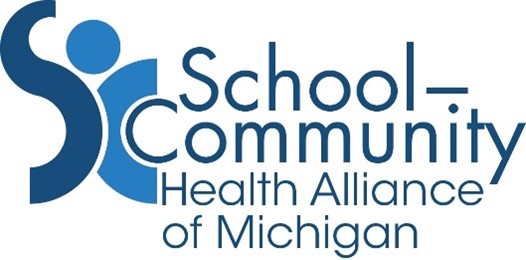Healthy Kids Learn Better
Choosing a Child and Adolescent Health Center, also known as a school-based health center (SBHC), means prioritizing the health and well-being of your child. For over 30 years, Michigan's SBHCs have provided comprehensive physical and mental health care tailored to the needs of children and teens. With more than 300 centers across the state—almost 75% of Michigan counties offering adolescent health programs—these centers ensure that quality care is accessible, especially in economically disadvantaged areas where families often struggle to find medical services. Over 200,000 children and youth benefitted from essential services such as immunizations, mental health care, and health education. SBHCs create a welcoming and friendly atmosphere designed specifically for young people, making it easier for them to seek help. With services provided by qualified mid-level practitioners, parents can trust that their children receive expert care in a familiar setting. By choosing a school-based health center, you're not just ensuring your child's access to vital health services; you're also contributing to improved student attendance, graduation rates, and overall mental well-being, all while reducing the need for hospitalization and emergency care. Invest in your child's future by choosing a health center that understands their unique needs!
Programs
The Michigan Department of Health and Human Services (MDHHS) offers a variety of vital programs aimed at promoting the health and well-being of children and adolescents. Child and Adolescent Health Centers (CAHC) provide comprehensive health care services tailored to the unique needs of young people, ensuring access to essential medical and mental health support. School Wellness Programs (SWP) focus on fostering healthy environments within schools, promoting wellness initiatives that enhance students' physical and emotional health. Additionally, the Expanding, Enhancing, Emotional Health (E3) program works to strengthen emotional well-being among youth through targeted resources and support. Together, these programs play a crucial role in creating healthier futures for Michigan's children and adolescents.
-
-
- CAHC: Child and Adolescent Health Centers (CAHCs) enhance the health of children, adolescents, and their families by offering essential primary, preventative, and early intervention health care services. These centers provide primary care, comprehensive health assessments, vision and hearing screenings, immunizations, treatment for acute illnesses, chronic illness management, health education, and mental health care. Serving youth ages 5-21, CAHCs operate within schools (School-Based Health Centers) or nearby (School-Linked Health Centers).
-
-
-
- SWP: Launched in 2010, the School Wellness Program (SWP) aims to promote academic success by ensuring students achieve optimal physical and mental health. SWP staff collaborate with schools, parents, and health professionals to assess, identify, plan, implement, and evaluate the health needs of the school community, directing services toward creating a healthy school environment.
-
-
-
- E3: The Expanding, Enhancing Emotional Health (E3) program provides on-site comprehensive mental health services for students with mild to moderate needs at schools or on school grounds. It includes year-round referrals, tracking, and follow-up through agreements with host schools or local districts. E3 providers are expected to operate 40 hours per week, offering clinical services by licensed Master’s level mental health professionals (LMSW, LLMSW, LPC, LLPC, LMFT, LLMFT) with appropriate supervision. The program serves elementary, middle, high, and alternative schools while adhering to School Code Regulations.
-
Fiduciaries
Introducing the fiduciaries
Child and Adolescent Health Centers (CAHCs) are supported by a network of fiduciaries that include Federally Qualified Health Centers (FQHC), Hospitals, Health Departments (HD), Schools, Intermediate School Districts (ISDs), and other community partners. These fiduciaries play a crucial role by offering supplemental support and staffing for CAHC programs, ensuring the delivery of comprehensive health services to children and adolescents. Through this collaborative effort, CAHCs can effectively provide primary, preventative, and early intervention health care, promoting the physical intellectual, and emotional well-being of youth within the community.
Getting to Know School-Based Health Care in Michigan
- 196 total school-based/school-linked centers and programs; 100 are state-funded
- 52% of Michigan Counties have an adolescent school-based health program
- In 2018: Over 37,000 children and youth have used school-based/linked health care in Michigan, including immunizations, mental health care, primary care, and health education services.
- School-Based Health Centers are a pediatric office located in a school staffed by mid-level practitioners (Nurse Practitioners and Physician Assistants).
- They are a located in areas where families are economically disadvantaged and struggle to access medical services.
- The centers are designed to appeal to young people by creating a friendly atmosphere specific to their age-group.
- Parents must sign written consents for their children to receive the full scope of of services provided at the School-Based Health Center
School-Linked Health Centers
- Located off school grounds
- Often serve more than one school
- Established methods of referral, communication, and follow-up with SBHC partners
- Often extended hours beyond the school day
- Often broader scope of services than SBHCs


The Benefits of School-Based Health Care
- Increases student attendance and graduation rates
- Improves school performance
- Succeeds in preventing and treating conditions such obesity and asthma
- Reduces hospitalization and emergency care usage
- Improves mental health
Data Sources:
School-Based Health Alliance Fact Sheets, https://www.sbh4all.org/
Michigan Department of Community Health https://www.michigan.gov/mdch
